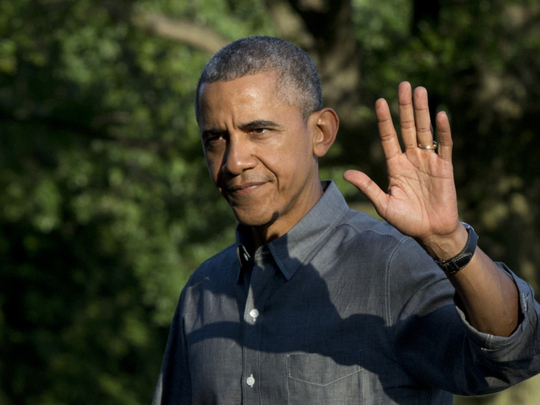
In defence of the Iran deal, United States President Barack Obama and some of his supporters have suddenly become partisans of former US president Ronald Reagan. “Where I completely admire him,” the president told Thomas Friedman, “was his recognition that if you were able to verify an agreement ... with the evil empire”, then it was worth doing. My Post colleague E.J. Dionne invoked what he called “a combination of Reaganite practicality and Reaganite hopefulness” in support of Obama’s bargain.
Set aside for the moment the fact that Reagan walked away from the biggest nuclear deal he negotiated with Mikhail Gorbachev and that the Obama administration accused Russia of cheating on the one treaty Reagan did conclude. Is it fair to say that Obama’s handling of Iran is comparable to Reagan’s treatment of the Soviet Union?
A narrow answer is yes, in the sense Obama described: Reagan might well have concluded that a bargain postponing Iran’s emergence as a nuclear threshold state for 15 years was worthwhile regardless of the nature of the regime. Beyond that, however, Reagan’s answer to the Soviet threat was virtually the opposite of Obama’s for Iran. In that difference lies the strongest critique of the policy this president has pursued.
Though he sometimes plays it down, Obama deeply believes that what he calls engagement with Iran can lead the regime to embrace “a different path” during the decade its nuclear development will be on hold. Thanks to the deal, he told Friedman, the mullahs “have the ability now to take some decisive steps to move towards a more constructive relationship with the world community”.
Reagan, in contrast, didn’t believe the Soviet Communist leadership would change. He was a sceptic of the “detente” policy pursued by Richard Nixon and Jimmy Carter, calling it “a one-way street that the Soviet Union has used to pursue its own aims”. His goal was to do whatever he could to undermine and eventually destroy the regime, whether it was shipping arms to insurgents fighting the Soviet army in Afghanistan, speaking out in favour of imprisoned dissidents or theatrically demanding that Gorbachev tear down the Berlin Wall. Reagan’s massive increase in defence spending and embrace of missile defence helped to provoke the final collapse of the Soviet economy as it struggled in vain to keep up.
Reagan’s insight was that it was possible to strike deals with Moscow on nuclear arms while simultaneously waging an uncompromising Cold War. Obama’s ideology, which he has applied to Cuba and Myanmar as well as Iran, is that the US should seek not to defeat its adversaries, but to coax them into more cooperative behaviour.
Consequently, Obama has strongly resisted Reagan’s methods. He has starved Syrian rebel forces of the arms and training they seek to defeat Iran’s closest ally. He declined to speak up for Iran’s domestic opposition even when it staged a street rebellion against the regime in 2009. He has never attempted to secure Iranian compliance with human rights norms, as did Cold War treaties with the Soviet Union. At his news conference last Wednesday, he coldly described the possibility of a strengthened Hezbollah, Iran’s proxy army in Syria and Lebanon, as an acceptable tradeoff for the nuclear deal.
Obama pointed out to Friedman that his diplomacy could have the effect of undermining Iran’s most hardline factions, “those who are most invested in Iran’s sponsorship of terrorism ... most virulently anti-American and anti-Israel”. But he also acknowledged that the fundamental change Reagan sought is not in the cards: “The so-called moderate in Iran is not going to be suddenly somebody who we feel reflects universal issues like human rights.” This president is more interested in tactical geopolitical benefits. “There are better or worse approaches that Iran can take relative to our interests and the interests of our allies,” he said.
In that respect, Obama’s Iran policy more closely resembles the realpolitik of Nixon with China, as the Washington Post’s Charles Lane has pointed out. The rewards, if any, will come in Iranian cooperation in defeating Daesh (the self-proclaimed Islamic State of Iraq and the Levant), or in enabling political solutions — and an American exit — in Iraq and Syria. Even that is a long shot, according to most of the administration’s own experts, who expect Iranian aggression to escalate rather than diminish.
In the end, Obama’s policy could produce a very different legacy than that of Reagan. A generation later, the Gipper’s arms negotiations with Moscow look like a modest success — but his contribution to the collapse of Soviet Communism was an epochal achievement. Obama may be able to point, 15 years from now, to an Iran that remains non-nuclear. But the most likely effect of his engagement policy is not the implosion of the Islamic republic, but its perpetuation.
— Washington Post









